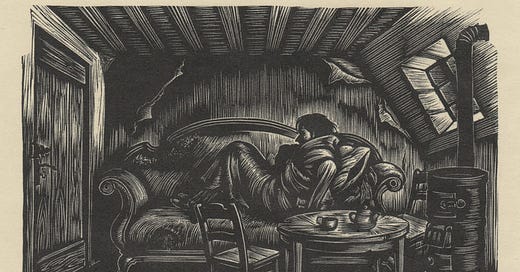Welcome to Week 10 of my slow read of Crime and Punishment. This week’s chapter is Part Two, Chapter 3.
Please bookmark the homepage for the read-along. You’ll find links to everything you need as we read the novel together.
Keep reading with a 7-day free trial
Subscribe to Cams Campbell Reads to keep reading this post and get 7 days of free access to the full post archives.



